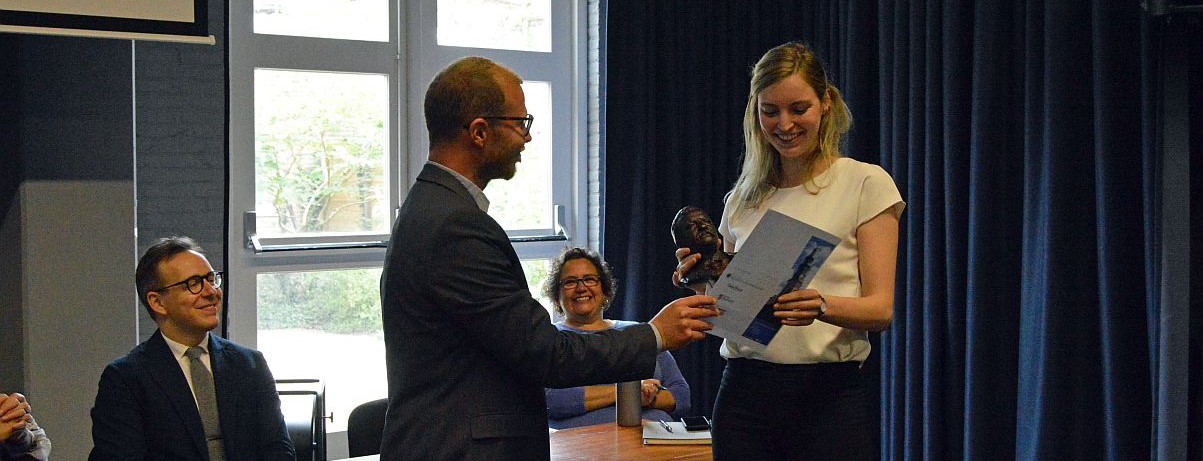Theodore Roosevelt American History Award 2019
Each year, the Roosevelt Institute for American Studies is pleased to organize the Theodore Roosevelt American History Award (TRAHA), which is presented to the best MA thesis on US-related topics written in the Netherlands during the previous academic year. The Jury of the 2019 edition was composed of Dario Fazzi (chair, RIAS), Megan Griffiths (2018 TRAHA winner), Sara Polak (Leiden University), and Tim Jelfs (University of Groningen).
The short-listed theses were genuinely multidisciplinary. They dealt with a variety of topics, approaches, and methods that simultaneously challenged and positively impressed the Jury. Most of the analyses moved away from “traditional” political history approaches and focused instead on popular culture, socio-economic developments, and cultural entanglements. This tendency may be related to the fact that the study of U.S history at Dutch universities has been gradually integrated into wider history programs, or into broader academic fields such as International Studies, Languages, Cultural Studies, or American Studies. The net result of this process of reconfiguration is a constant expansion of themes, times and spaces, which eventually proves the livelihood of the field of study. The students ventured into meta-contexts, hyper-textuality, intersectionality, and literary criticism in ways that are at the same time diachronic and transnational. Whilst this complicates the task of doing research on the U.S. and on U.S. history; at times, it perhaps leads toward hyper-specialization; it also helps to situate the U.S. in larger temporal and geographical perspectives.
Inspite of their different backgrounds and sensitiveness, the Jury members found it relatively easy to identify a winner: Queeny van der Spek, of the University of Amsterdam, for her thesis ‘Hitler’s Gift to America: the American Motivations to Rescue Displaced Scientists from Europe in the 1930s’.
Queeny undertook excellent research for an extremely well-written thesis on an important (and timely) topic in U.S. history. Queeny recounts the compelling story of America’s efforts to provide European scientists with a safe haven vis-à-vis the rise of Nazi-fascism in the Old Continent. In particular, Queeny scrupulously explores the reasons underlying American national interest in rescuing displaced European scientists and offers fresh insights into the story of American interwar refugee policies. In this regard, Queeny makes a substantial contribution to the existing debate about U.S.’s responsibilities over the fate of European Jews and pinpoints the correlation between science and politics, which rests at the center of her intellectually engaging and historically revealing analysis.
A copy of the full TRAHA Jury report can be found here.
Here is Queeny’s travel report.



